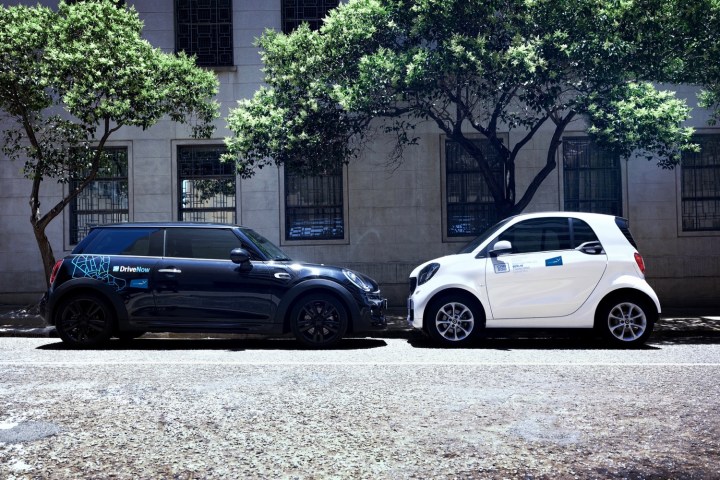
BMW and Daimler (parent company of Mercedes-Benz) are fierce rivals when it comes to selling cars, but the two German automakers are nonetheless teaming up to take on the likes of Uber and Lyft. The companies had earlier announced plans to merge their mobility services into a global joint venture in 2018, and are now providing the first details on how that effort will work.
The two companies are investing a combined $1.1 billion to create a comprehensive suite of mobility services, using each automakers’ existing services as the foundation. BMW and Daimler already have 60 million customers worldwide from their current services, including the BMW Reach Now and Daimler Car2Go car-sharing services. Autonomous electric cars will be integrated as the technologies mature, the automakers said in a statement.
The joint venture will initially focus on five main areas. Taking its name from BMW’s existing United States-based car-sharing service, Reach Now will encompass multimodal transportation, including coordinating car-based services with public transit and bike sharing. Free Now will include ridesharing services that compete with Uber and Lyft, while Share Now will handle car-sharing services. Charge Now and Park Now will focus on electric-car charging and parking, respectively.
BMW and Daimler claim the joint venture will create 1,000 jobs worldwide. The automakers did not discuss specific plans for operations in the U.S., but since both already operate mobility services here independently, it’s likely that services from the new team effort will launch here eventually.
The rise of ridesharing, car-sharing, and alternative mobility services using bicycles and scooters present a threat to automakers. If you can hail a car using Uber or Lyft, rent one through Zipcar, or pedal to your destination on a Lime bike, there’s less need to own a car. But automakers believe they can effectively compete with existing mobility-service players. In addition to BMW and Daimler, automakers like Ford and Volvo are experimenting with mobility services, General Motors has a dedicated car-sharing division called Maven, and is launching a line of ebikes under a new brand called Arīv.
The anticipated rise of self-driving cars could accelerate the growth of mobility services. Autonomous vehicles can stay on the road longer, offering greater convenience to customers and greater profit-making potential to companies. Daimler is already moving in that direction, with plans to launch an autonomous ridesharing pilot in San Jose, California, later this year.


